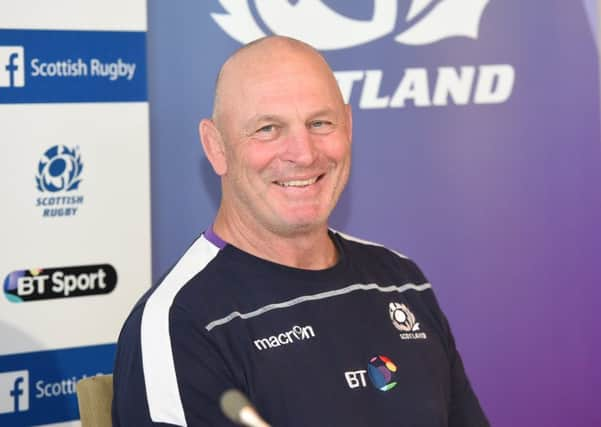Allan Massie: Old Scottish failings gives cause for concern


A lot of old faults that we had hoped were being eradicated re-appeared. We were slow and incompetent in attack, with far too many handling errors. We were slow and incompetent at the breakdown. The defence was brave and committed, as it should be, and held out for long periods of sustained Japanese pressure. Even so, the first tackle was often missed and a second tackler required. A stronger team than Japan would have made more of the failure to stop the attack early.
In the Tokyo game we created only one try-scoring chance, and Henry Pyrgos blew it by throwing out a longish flat pass from a ruck on the Japanese try-line; it was predictably intercepted.
Advertisement
Hide AdAdvertisement
Hide AdPerhaps we shouldn’t read too much into these games. Nevertheless, comparisons with matches elsewhere are illuminating, and, from a Scottish perspective, worrying.
Wales, admittedly, were heavily defeated in their three Tests in New Zealand. They competed for part of each match, rather as Scotland have done in games against the All Blacks, before being overwhelmed. More worrying for the Welsh was the hammering their second-string side got in the midweek match with the Chiefs. There’s no great depth in Welsh rugby, no more than in Scottish, as indeed the recent record of Welsh clubs in the Pro 12 and European Champions Cup confirms.
Ireland, on the other hand, going to South Africa with a squad missing several first-choice men, won the first Test, let the second slip after building what should have been a commanding lead, and came pretty close to winning the third. Again, the message from the Pro 12 is clear. Ireland have strength in depth.
By any count, Connacht, Leinster, Ulster and Munster are four of the best six clubs in the league, and the international side reflects this strength. Ireland have seen Brian O’Driscoll and Paul O’Connell retire, and been without Peter O’Mahoney and Sean O’Brien for most of the past season, and shrugged off the losses. Ireland is a terrific rugby country now.
France used to be that too, but their money-rich Top 14 has damaged the national team, just as the wealth of the Premiership does in English football. If you fill your club sides with glittering international stars, your home-bred players are able to shirk responsibility. Nevertheless France took an under-strength team, missing players from the leading Top 14 clubs, to Argentina and won 27-0 last week. Perhaps their Old Master coach, Guy Noves, is beginning to work miracles.
But the top northern dogs are undoubtedly England. The team that Stuart Lancaster built, and which Eddie Jones has inherited and developed, have now won England’s first Grand Slam since 2003 and beaten Australia in all three Tests. So that’s eight wins in a row since their World Cup failure. Moreover they’ve done it playing some sparkling rugby, and they are still a young side with room for improvement.
We have often said, with a certain apprehension, “if England ever get their act together…” Well, they seem to have done so, and this team could dominate the northern hemisphere for years, and even challenge the supremacy of the All Blacks. They don’t play them this autumn, and, realistically and with foreboding, the only place I can see them losing next season is in Dublin.
That’s not all. The under-20 England side which have just won the Junior World Cup are brilliant. In the final they completely outplayed a good young Ireland side and did so in a manner as far removed as is possible from the old stick-it-up-the-jersey and bludgeon your opponents English style. They played wonderfully adventurous and skilful rugby, and, if you laid aside national prejudice, they were a joy to watch – just as the All Blacks are.
Advertisement
Hide AdAdvertisement
Hide AdSo, while Vern Cotter has unquestionably improved and stiffened the Scotland team, we have a very long way to go if we are to compete successfully against even the second best. There are autumn internationals against Australia, Argentina and Georgia, none of them easy. Georgia have just played Samoa, Fiji and Tonga on successive weekends and emerged undefeated (two wins and a draw); that’s decidedly good form. In the Six Nations it’s a year when we have Ireland, Wales and Italy at Murrayfield. Four wins from these six home matches is the least we should demand. Otherwise we might have a chance of winning in Paris, but Twickenham? One can scarcely even dream of winning there for the first time since 1983. After all, a composite England- Scotland side would perhaps have 12 Englishmen to three Scots – and one of the Scots would be a South African.